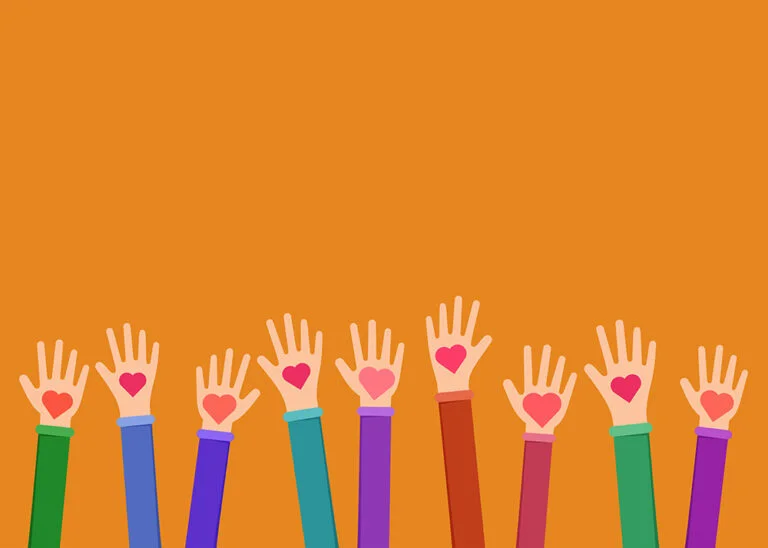Young children knocking on your door offering to sell you toilet paper is totally normal in Norway. Here's the story of Norway's traditional fundraising drives.
Every year in the months leading up to Christmas, Norway’s many activity clubs—largely organized around volunteer efforts and perpetually underfunded—rally together for various annual fundraising sales.

Once upon a time, this fundraising would be done by a child walking door-to-door. These days, some children walk door-to-door, but a lot of the fundraising is done by parents on social media.
The changing nature of fundraising in Norway
My Facebook feed is full of messages from other parents:
‘Marianne is selling bamboo socks to raise money for the athletics club’. ‘Please support the football club by purchasing toilet paper this year! Contact me for details’. ‘The music band is selling board games this year! Please support us by purchasing our games. Contact me through Messenger or in the comments below.’
Read more: Parenting in Norway
Every club my own three children are involved in sends emails: ‘This year, we have decided that all members shall sell a lovely gift package containing environmentally friendly drinking bottles, coffee mugs, vanilla scented candles and bamboo socks.'
‘Please collect your package before December 1st. The invoice will be emailed to you,’ and ‘Don’t forget to collect your son’s allotted share of toilet paper and kitchen roll supporting the swimming club’s annual fundraising. Pay at pickup and re-sell as you see fit.’

Once we reach December, Christmas cookies and lottery tickets are added to the mix. Some in the form of ‘volunteer’ teens ringing the doorbell asking if we can please purchase dry cookies to help raise funds for club a, b or z.
Others as a trade-off between teen parents who find it easier to simply invest 200 NOK in a game of musical cookies where I buy your son’s chocolate cookies if you buy my daughter’s gingerbread nuts.
An extension of the Norwegian Dugnad
Traditionally, children’s clubs raised money in a ‘dugnad’ spirit. Dugnad is a well-established concept in Norway, indicating a community volunteer/unpaid effort in support of a common good.
In my childhood, all the families in our street came together every spring to clean up the neighborhood through weeding, washing, leaf picking and mending the playground. Everyone contributed what they could, there was food and drinks, and the job got done. This is ‘dugnad’.
My childhood music band and sports club raised funds by sending all the children out to sell tickets for a lottery; you raised whatever you could, without a minimum sales requirement. Also, ‘dugnad’.

The use of volunteer efforts – dugnad – in organized activities contribute to reducing the club’s expenses and make participation more available to everyone due to (relatively) low annual fees.
My son’s football club, where he plays five days per week, charges us just shy of 2,000 NOK per year. By comparison, the football club he played with in Oman charged around 600 NOK per month.
The Norwegian club has a high degree of unpaid parental input. Parents run the café, bake for tournaments, coach the teams, and man the board. The Omani club, by comparison, is staffed by professional British players and coaches. All I had to do as a parent was sit in a chair and drink tea.
Professionalism may provide a higher quality coaching staff for those who can pay, but dugnad provides the opportunity to play for the masses, as argued by Tom Farrey in the New York Times. In egalitarian Norway, equal opportunity is highly valued.
Is it still dugnad?
There is, however, only so far as you can stretch volunteer effort and still call it voluntary, and today’s annual fundraising dugnad is a far cry from the ‘do-your-best’ lottery sale of my youth.
While the Norwegian Sports Confederation guidelines clearly state that dugnad is voluntary, no member can be forced to contribute and no member can be expected to pay fines or fees if they chose not to participate, opting out of the annual fundraising sales effort is rarely presented as an option.

In principle, it is free, because I can buy the toilet paper and resell it, reclaiming the funds. Alternatively, I can choose not to sell the toilet paper; but I’m requested to pay the sum the club would have received from the sale.
As a parent of three, I simply accept the annual fundraising as part of having active kids. I buy the toilet paper – my car won’t ever fit in the garage, but I remained completely calm through the coronavirus toilet paper scare in March 2020.
I opt out of selling socks, board games and water bottles and simply pay the bills, mainly because I think there is already enough stuff we don’t need in the world.
It is debatable whether the annual fundraising sale qualifies as a ‘dugnad’ effort, but either way, the amount you’re asked to pay is negligible compared to what it would cost to run the children’s clubs with trained professionals.
I appreciate that my children have affordable activities to attend, and I am ready to send another couple of hundred NOK out to play in the game of cakes. Because cake is never wrong.

